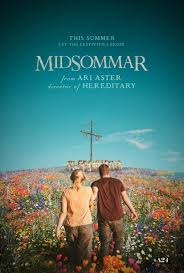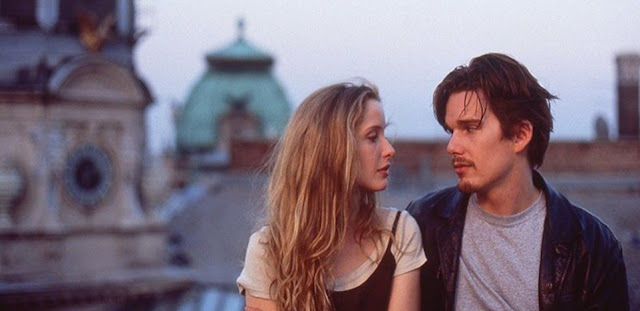Midsommar - Macabre tale set in the land of the midnight sun
The creepy trailer and the tag of it being a horror movie without actual ghosts lured me into watching it.
And there was Dani - the female protagonist around whose breakup journey the story revolves, who starred in Little Women. I like to watch movies by the actors that I had loved in one past movie. She is phenomenal in expressing the sheer grief and trauma that is an integral part of this movie.
But there should have been a disclaimer somewhere - watch at your own discretion and risk. It's not an easy movie. In one word - it's Macabre. Not exactly horror. It just affects you mentally. I won't really recommend it - but truth is curiosity got better of me and I watched it completely, and then watched 'ending explained' videos and real midsummer rituals in Nordic lands which are nothing like what is in this movie. Dark thriller with brutal violence disguised as Scandinavian pagan culture traditions in the land of the midnight sun. The script has taken old folktales from Norway and given it a macabre twist in the movie.
Midsommar is a play of disguise. For one, the picturesque locales of the village away from modernisation don't prepare you for what is ahead. It doesn't put you on your guard, making you vulnerable. And the peaceful background score add to it. Then when something happens you are left shocked, stunned, what-the-hell-is-going-on-like- for the lack of a better word. The scriptures, the intricate wall papers, paintings add to the storytelling keeping you intrigued yet wanting to just flee - shut that screen off. It makes you feel claustrophobic in the wide daylight under the open sky. The movie has almost no night scenes or dark shots. It is entirely set in a place where there's 22 hours of daylight, blurring the characters' sense of yesterday and tomorrow.
It starts with a great tragedy in Dani's life, then proceeds to their summer vacation to this community with their friend to observe a once in 90-years ritual that continues for 9 days. The community welcomes the guests with hallucinogenic mushrooms. And next nine days all drink a lot of drugs disguised as fancy tea, blurring their sense of self, reality and the world. After the first day of the ritual most outsiders decide to just leave, but some go missing, and curiosity gets the better of the rest.
Verdict - Don't watch it. Because if you start, you can't stop. And throughout you'll keep regretting it. And yet you would be intrigued. I don't watch regular horror much. So don't know how I came across this in Mubi. The closest I have come across such psychedelic drama is 'I'm Thinking of Ending Things' (2020) where you constantly feel like what the hell is going on. Online reviews on Midsommar say its disgusting for some, disturbing, unsettling, etc - various adjectives, so tread with caution. You now know what to expect.










Really interesting movie, your review makes it far more engrossing to give it a watch. I just started watching a TV series from yesterday called 'Devs', and it is haunting and creepy, but absolutely classy and cool. Your review of this movie will surely drive me to watch it. Thanks for the share :)
ReplyDeleteWow that was some review. I loved the verdict and how you have explained it. I don't like most horror movies because of how they wait for the night for something to go wrong. But this one sounds like it has found an interesting way to circumvent it.
ReplyDelete